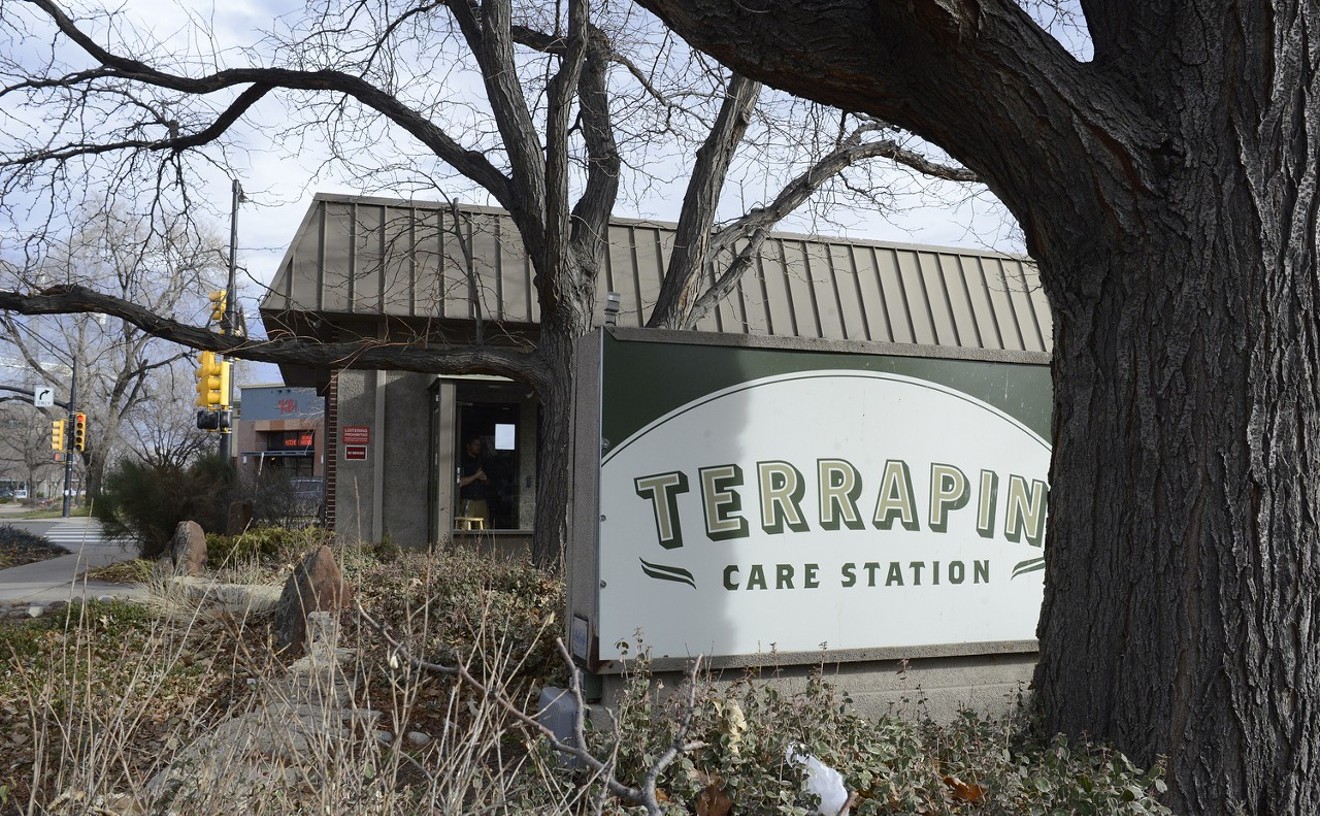A controversial bill proposing new restrictions to Colorado's medical marijuana program and stricter requirements for commercial pot concentrates cleared another obstacle in the state legislature after a handful of amendments, but one Colorado attorney says the bill's language would force doctors into a conflict with federal law.
House Bill 1317 is on the fast track to the state Senate after being introduced by House Speaker Alec Garnett, passing three committee hearings in just over a week. The proposal calls for several additional layers of protocol for medical marijuana patients and their physicians, including a required THC dosage amount and tracking system for patient purchases, and added medical and mental health reviews during patient applications.
Lobbies representing parents, public educators and health-care representatives have also pushed for more restrictions on concentrated THC products, pointing to state data showing that the use of high-potency marijuana increased among teenagers from 2017 to 2019, and has more than doubled since 2015.
Under the bill, around $1.7 million in state funds would be allocated to a systematic review of the effects of high-potency marijuana products to be conducted by the Colorado School of Public Health, with the review's findings used to create a public education campaign. In another $1.7 million project, coroners would annually report the results of THC toxicology screens in suicide, overdose and accidental deaths for people under the age of 26 to the Colorado Violent Death Reporting System.
Medical marijuana concentrate sales limits would also be significantly reduced under HB 1317, and new medical patients between the ages of eighteen and twenty — a contributing factor to youth consumption, in the eyes of the bill's sponsors — would face additional obstacles to obtaining a medical marijuana card, as well as more daily limitations on the amount of marijuana concentrate they could buy.
The bill was amended eight times by Garnett and co-sponsor Representative Yadira Caraveo during the measure's most recent hearing, but those changes did not mollify medical marijuana proponents.
According to Denver attorney Alex Buscher, portions of HB 1317 are unconstitutional under Colorado statues, and will force doctors to break federal law by prescribing medical marijuana.
In Colorado, medical marijuana is currently recommended by doctors, not prescribed; those recommendations do not come with a specific dosage or ingestion method, as a prescription would. Doctors with prescription power must register with the Drug Enforcement Administration, which doesn't allow prescribing Schedule I drugs — a federal label that still applies to cannabis.
A 2000 ruling in the Ninth Circuit Court of Appeals ruled that doctors in states with medical marijuana have the legal right to recommend marijuana but not prescribe it. Because of this, Buscher says, sections of HB 1317 requiring doctors to specify THC dosage and consumption method would put them at odds with the DEA — a risk most physicians won't be willing to take, he warns.
"A lot of doctors are fearful of getting those DEA privileges taken away," Buscher says. "That's the legal side, but the practical side is the issue. You [would] have hospitals with policies that all of their doctors can't recommend medical marijuana" because of their doctors' DEA licenses and the malpractice insurance requirements — a concern confirmed by a Children's Hospital Colorado physician during HB 1317's eight hours of testimony last week.
Bill language limiting doctors to recommending medical marijuana within their respective scopes of practice could further limit patient access, Buscher says.
"A neurologist would have to recommend [marijuana] for epilepsy; a pain specialist for chronic pain. Most neurologists work in hospitals or practice groups with policies that do not allow doctors to recommend marijuana," he explains.
Garnett and Caraveo's amendments removed explicit language demanding that doctors operate within the scope of their practice — but added language stating that doctors cannot work outside of their scope of practice, leaving "no effect on the unconstitutional portions of the bill," Buscher adds.
Other amendments to the bill included a change to the concentrate packaging restrictions portion. Previously, the measure called for all THC concentrate to be individually packaged in servings of ten per gram by the beginning of 2023. Garnett backed off of the individual packaging requirement, however; instead, the bill would task the state Marijuana Enforcement Division to come up with new concentrate packaging rules at future rulemaking meetings. Labeling requirements or photo instruction on packaging have been floated as possible alternatives.
Lawmakers also approved amendments that changed public announcement aspects of the suggested research project, and loosened mental health review requirements for prospective medical marijuana patients. Another change to the bill would make child patients exempt from the concentrate limitation if they had a medical marijuana card prior to bill's implementation.
"While this helps those patients theoretically, the rest of the bill still makes the regulated medical system unworkable, even for patients in this exemption category," Buscher says. "I do not feel that real progress has been made so far."
If HB 1317 passes as expected, Buscher warns that language from Amendment 20, the voter-approved amendment legalizing medical marijuana in 2000, combined with a recent case from the Colorado Court of Appeals could lead to unintended consequences. According to Buscher, Amendment 20 exempts people with a medical marijuana recommendation from all criminal laws regarding their medical use of marijuana, so a patient doesn't technically have to register with the state Medical Marijuana Registry after receiving a doctor's recommendation. The defendant in the appeals case, who'd been charged with seven felony marijuana distribution and cultivation charges after police raided his Palisade property in 2017, successfully used this affirmative defense to deny restrictions imposed by the legislature.
"This exemption includes not being able to prosecute concentrate manufacture at home," Buscher explains. "If the registry system becomes unworkable, the 'gray' caregiver system will explode once again. The state does not want this to occur; it would create a flourishing underground market."
HB 1317 is scheduled to be heard on the House floor for the first time on May 27.
[
{
"name": "Air - MediumRectangle - Inline Content - Mobile Display Size",
"component": "12017618",
"insertPoint": "2",
"requiredCountToDisplay": "2"
},{
"name": "Editor Picks",
"component": "17242653",
"insertPoint": "4",
"requiredCountToDisplay": "1"
},{
"name": "Inline Links",
"component": "18838239",
"insertPoint": "8th",
"startingPoint": 8,
"requiredCountToDisplay": "7",
"maxInsertions": 25
},{
"name": "Air - MediumRectangle - Combo - Inline Content",
"component": "17261320",
"insertPoint": "8th",
"startingPoint": 8,
"requiredCountToDisplay": "7",
"maxInsertions": 25
},{
"name": "Inline Links",
"component": "18838239",
"insertPoint": "8th",
"startingPoint": 12,
"requiredCountToDisplay": "11",
"maxInsertions": 25
},{
"name": "Air - Leaderboard Tower - Combo - Inline Content",
"component": "17261321",
"insertPoint": "8th",
"startingPoint": 12,
"requiredCountToDisplay": "11",
"maxInsertions": 25
}
]












